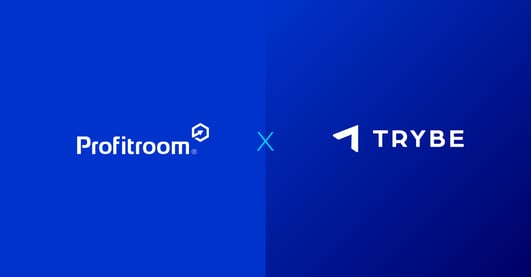As digital channels become the primary way guests discover and book hotels, ensuring your website is accessible to all users is no longer optional—it’s a legal requirement. The European Accessibility Act (EAA), coming into force in 2025, sets clear standards for digital accessibility, mandating that websites in the hospitality sector comply with internationally recognised guidelines.
At Profitroom, we understand the challenges hoteliers face in adapting to these new regulations while continuing to attract and convert direct bookings. To help you prepare, we’ve put together answers to the most frequently asked questions about digital accessibility and the EAA.
What is WCAG and why does it matter for my hotel website?
The Web Content Accessibility Guidelines (WCAG) are international standards designed to ensure websites are usable by everyone—including people with disabilities. From 2025 onwards, compliance with WCAG will be mandatory under the EAA for hotel websites across the EU, so it’s vital your site meets these standards.
Why should my hotel prioritise digital accessibility?
Aside from legal compliance, accessible websites:
- Open your hotel to a wider audience, including people with disabilities
- Improve user experience, making it easier for all guests to find information and book
- Enhance your brand reputation as an inclusive and guest-friendly business
- Increase direct bookings by reducing barriers and frustrations
Which parts of my website need to be accessible?
Nearly all elements should be accessible. Key areas to focus on include:
- Booking forms and reservation processes
- Room descriptions, pricing, and amenities
- Image galleries and multimedia content
- Navigation menus and informational pages (contact, directions, local attractions)
- Proper use of alternative text for images
What accessibility features should my website offer?
An accessible hotel website should provide:
- Adjustable or sufficient colour contrast
- Alternative text descriptions for all images
- Full keyboard navigation support
- Logical and clear page structure (headings, links, buttons)
- Plain and understandable language
Do I need to redesign my entire website to comply?
Not necessarily. Many accessibility improvements can be made by updating specific elements, improving text and image descriptions, and adjusting design details such as contrast. However, if your site is built on outdated platforms, migrating to a modern, accessibility-ready system like Profitroom’s WebAssistant may be the best approach.
Will accessibility changes affect my website’s look and feel?
Accessibility doesn’t mean compromising on modern design. With thoughtful planning, your website can remain visually appealing while meeting all accessibility standards. Changes can be implemented gradually, such as adding a high-contrast mode or tweaking colours to meet guidelines.
Does accessibility apply to mobile websites too?
Absolutely. With more guests browsing on smartphones and tablets, accessibility must extend to mobile versions, ensuring all features work smoothly on smaller screens and touch interfaces.
How can I check if my website complies with WCAG?
We recommend a professional accessibility audit. Automated tools like WAVE or axe offer a preliminary check but cover only about 60% of potential issues. A thorough review combines automated scans with manual testing of navigation, readability, and interactive elements.
Can accessibility improvements increase bookings?
Yes. An intuitive, accessible website reduces friction and frustration, helping guests complete bookings quickly and confidently. It also bolsters your reputation as a modern, inclusive hotel—something today’s travellers value highly.
Does Profitroom offer support with accessibility compliance?
We provide end-to-end assistance—from audits and consultancy to full technical implementation—ensuring your website meets WCAG 2.2 standards and is ready for the 2025 regulations.
What are the timelines for compliance under the EAA?
- Websites launched after 28 June 2025 must be compliant immediately.
- Existing websites launched before this date have until 28 June 2030 to comply.
Some exemptions may apply to micro-enterprises.
What are the consequences of non-compliance?
Failing to comply risks:
- Financial penalties (up to ten times the average monthly wage)
- Legal orders to fix violations
- Potential bans on providing services or selling products
- Damage to your brand reputation and guest trust
- Loss of access to public contracts and EU funding
Ready to ensure your hotel’s website is compliant and welcoming to all guests?
At Profitroom, we specialise in creating accessible, user-friendly hotel websites designed to maximise direct bookings while meeting all legal requirements. Don’t wait until the deadline—get ahead now.
Contact us today to schedule your accessibility audit and discover how we can future-proof your digital presence.
If you’d like to learn more about digital accessibility, the European Accessibility Act and the WCAG, make sure you check out some of our other resources.
Why Digital Accessibility Matters for websites
The Future of Digital Accessibility for your Booking Engine
-Mar-11-2025-10-07-16-4716-AM.jpg?width=2000&name=Reception%20with%20Guest_00125%20(3)-Mar-11-2025-10-07-16-4716-AM.jpg)
















